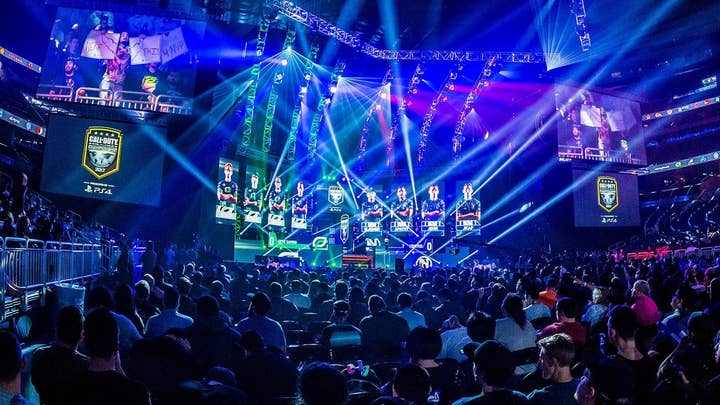Activision Blizzard sued by US government over esports salaries
Department of Justice says soft salary cap in Overwatch League and Call of Duty League violated antitrust laws
The US Department of Justice filed a civil suit against Activision Blizzard today, accusing the publisher of violating the Sherman Antitrust Act with Overwatch League and Call of Duty League rules that kept player salaries down.
The government is taking issue with the esports leagues' Competitive Balance Tax, which it says was intended to penalize teams if they spent more on player salaries than an amount decided upon by Activision Blizzard.
"Video games and esports are among the most popular and fastest growing forms of entertainment in the world today, and professional esports players—like all workers—deserve the benefits of competition for their services," Justice Department antitrust division assistant attorney general Jonathan Kanter said.
"Activision's conduct prevented that from happening."
Activision Blizzard denied the charges.
"When we launched The Overwatch and Call of Duty Leagues, we wanted to create viable career opportunities for the players requiring minimum salaries and mandatory benefits as part of player contracts," an Activision Blizzard representative told GamesIndustry.biz. "As a league, we also wanted our products to be competitive, so we carefully designed and implemented the Competitive Balance Tax.
"We have always believed, and still believe, that the Competitive Balance Tax was lawful, and it did not have an adverse impact on player salaries. The tax was never levied, and the leagues voluntarily dropped it from our rules in 2021. We remain committed to a player ecosystem with fair pay and healthcare and continue to have the least restrictive player mobility compensation system across all of the major sports leagues."
As previously detailed by The Jacob Wolf Report, the Competitive Balance Tax works much like a luxury tax in traditional sports leagues. Total team salaries have an upper limit that can be exceeded, but every dollar spent above that limit requires the team to also put another dollar into a pool that would be split and given to teams that spent below the limit.
One difference between Activision Blizzard's tax and those of Major League Baseball or the National Basketball Association is that the baseball and basketball leagues have player unions which agreed to salary cap systems through a collective bargaining process.
The Department of Justice has been looking into Activision Blizzard's soft salary caps for its esports leagues since 2021, but talks to settle the matter reportedly fell through last fall.
The Department of Justice joins the US Equal Employment Opportunity Commission, the California Civil Rights Department, and the National Labor Relations Board on the list of US state and federal government bodies that have taken formal action against Activision Blizzard in recent years.

